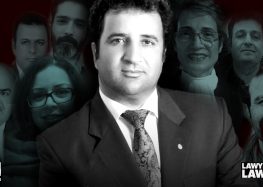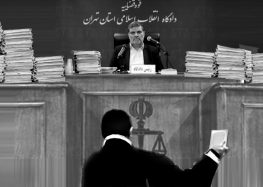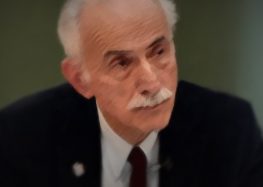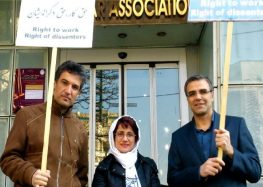Prominent, Ailing Human Rights Lawyer Sees 64th Birthday Pass by in Evin Prison
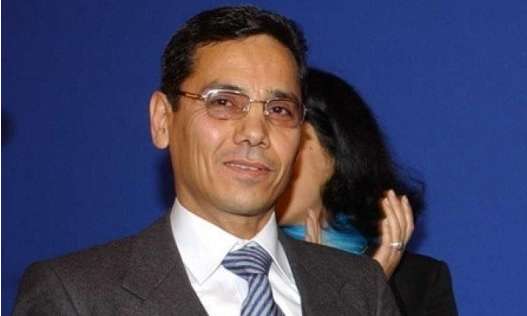
“I hope my father will be freed soon and his next birthday will not be in Evin Prison,” said Maedeh Soltani, the daughter of imprisoned prominent Iranian human rights lawyer Abdolfattah Soltani, on Nov 1, 2016—his 64th birthday.
“My father has served more than half of an unjust prison sentence and qualifies for conditional release, but all his requests have gone unanswered,” she told the International Campaign for Human Rights in Iran. “He has been eligible for conditional release for a long time, but the prosecutor is not responding to us. It seems the prosecutor only listens to security officials.”
She also expressed serious concerns about her father’s health.
“My father is suffering from heart disease. He has stomach problems, blood pressure swings and spinal disk pain. Doctors have said that prison will worsen his condition,” she said. “My family and our lawyer have written many letters asking for follow-ups on his medical problems, but they have not made any difference.”
Political prisoners in Iran are singled out for particularly harsh treatment, including denial of medical care.
Maedeh Soltani added that she and her mother were prevented from delivering a petition demanding Abdolfattah Soltani’s freedom—signed by 12,450 people, including civil and social activists—to the Tehran prosecutor’s office. Dated September 17, 2016, it addresses Judiciary Chief Sadegh Larijani. “But they didn’t even accept the petition,” she said. “Just like that, the Judiciary disrespects more than 12,000 intelligent adults and only listens to security officials.”
Abdolfattah Soltani, a well-known lawyer who represented dissidents and political prisoners in Iran, was arrested on September 10, 2011. He is serving a 13-year prison sentence for “being awarded the [2009] Nuremberg International Human Rights Award,” “giving interviews to the media about his clients’ cases,” and “co-founding the Defenders of Human Rights Center” with Nobel Peace winner Shirin Ebadi.
According to Article 58 of Iran’s New Islamic Penal Code, “…the deciding court can issue the order of conditional release for convicts sentenced to more than ten years imprisonment after half of the sentence is served, and in other cases after one-third of the sentence is served.”
“We have frequently asked the Judiciary to make an independent decision on my father’s case,” Maedeh Soltani told the Campaign. “We want them to either facilitate my father’s freedom or hold a new trial with a fair and impartial judge to investigate my father’s case… It seems that Judiciary officials are determined not to respond to our numerous requests for his conditional release.”
In May 2016 Maedeh Soltani told the Campaign that her father’s health was worsening, but that prison officials were refusing to provide adequate medical care: “In recent months this is the fourth time my father has been taken to the prison infirmary for chest pains and severe heart palpitations. But unfortunately my mother’s requests for my father’s medical furlough (temporary leave) for hospitalization have not been accepted so far.”
Abdolfattah Soltani was granted medical furlough on January 17, 2016 for 21 days, and was returned to Evin Prison before he had fully recovered. He was also hospitalized for 41 days in 2013 for heart and digestive problems.

